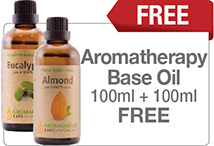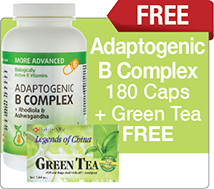Low Testosterone (Andropause)
Updated Aug. 14th, 2019
As we age, our gonads begin to release less and less reproductive hormones. In men, this means they produce less testosterone as each year goes by. In fact, after the age of 30, it is estimated that men lose 1% of their testosterone per year. Stigma about the "loss of manhood" with the reduction of testosterone has kept andropause in the lime light, despite its wide reaching health implications.
Role of Testosterone
DHEA, or Dehydroepiandrosterone, is produced by the adrenal glands, the ovaries and the testes and is a precursor to the production of testosterone as well as estrogen. Testosterone is responsible for libido (sexual drive) in both sexes as well as maintaining many other bodily processes – some of which include mood, metabolic regulation, blood production and male characteristics. Testosterone plays an important role in the growth of all body tissues like our muscles, skin, bones and hair. In men, testosterone is important for sperm production and controlling puberty.
Signs of low testosterone include:
- Loss of energy
- Depressed mood
- Lowered sex drive
- Erectile dysfunction (ED)
- Reduced muscle mass
- Increased fat stores
- Loss of bone density
There is some preliminary evidence that low testosterone in men is associated with increased risk of cardiovascular disease and diabetes. Simple blood tests can examine your blood testosterone levels to see where you fall relative to the normal range. It is important to keep in mind that each person is unique, and your natural levels may not fall within the "normal range". It is more important to examine whether you are suffering from any of the symptoms listed above.
Conventional Treatment
The conventional treatment is to directly supplement testosterone to overcome the limited production in the body, and it is available only by prescription in Canada. It can be used orally or topically, as a cream. Unfortunately, this supplementation can have unintended side effects and may increase the risk of prostate cancer over time.
Natural Treatment
There are a number of ways to boost natural testosterone levels and the most successful will depend on your unique case. Other natural treatments are targeted at reducing the symptoms associated with low testosterone although they may not actually influence blood hormone levels.
Exercise
A number of clinical trials have shown that exercise is a quick and effective way to boost natural testosterone levels. The intensity and duration of the workout is important, as relatively short bursts of intense exercise are very stimulating to testosterone production, while longer duration endurance-type activity can actually further reduce blood levels. Focusing on weights and doing cardio for less than an hour at a time is a good way to get the exercise that you need. Interestingly, exercise is also a simple way to help maintain healthy blood sugar and body fat levels, and help protect the cardiovascular system, thus further reducing the risk of developing the other negative side effects of low testosterone.
Diet
Some simple dietary changes can significantly improve testosterone levels in men. Eating moderate amounts of protein helps to stimulate anabolic hormone production, and one of these hormones is testosterone. Eating healthy fats and essential oils, such as fish oil, and coconut oil as well as moderate amounts of cholesterol can also contribute essential building blocks for proper testosterone production in the body. Thus, eating a diet that is: low in carbohydrates, moderate in protein and fat content, and that is also rich in fruits and vegetables can help to support proper natural hormone production. Coincidentally, this type of diet is also beneficial to overall health.
De-Stress
In today's fast-paced lifestyle, stress just seems to be a common fact of life. Unfortunately, long-term stress causes the release of a hormone called cortisol, which is also produced by the adrenal glands. When you are producing cortisol, you are not producing testosterone. That is why it is extremely important to take the time to reduce whatever stress you can in your life, and work on positive coping mechanisms for the things you can't fix. Simple activities like breathing exercises and guided imagery are easy ways to help reduce stress levels. For more information on stress reduction, see our stress article.
Reduce Alcohol Consumption
Drinking more than 3 alcoholic beverages a day is associated with a reduced production of testosterone. Limiting or eliminating your drinking altogether can help to promote healthier testosterone levels.
SUPPLEMENTS
There are a wide variety of supplements that can help alter your testosterone levels for the better. In general, natural therapy supports healthy hormone synthesis, prevents cortisol production, and reduces the breakdown of testosterone already present. In order to balance the adrenal gland and sex organs, there are a number of beneficial supplements. These support production of the precursor DHEA, and prevent the production of cortisol, there are a number of beneficial supplements.
Vitamins and minerals that support sexual gland function include vitamin C, vitamin E, selenium and zinc. Vitamins and minerals can be taken that support the production of hormones in the adrenal gland include the B vitamins, especially B5, vitamin C and zinc.
Herbs that support testosterone production by containing molecules that look like steroids and can stimulate the body in a similar way to hormones, like testosterone, include Tribulus (puncture vine) and Damiana.
Adaptogenic herbs help the adrenal gland optimize its functioning. The adrenal releases precursor hormones that go on to form testosterone. Many different herbs and mushrooms are used for adrenal support including the ginsengs, astragalus, licorice, rhodiola, ashwaghanda, and withania. In order to prevent the conversion of testosterone to other competing hormones, such as estrogen, certain supplements target the enzyme responsible for this conversion (aromatase). Supplements that can inhibit aromatase are: chrysin, resveratrol, quercetin, and some other plant isoflavones. There are a number of testosterone-boosting supplements that contain a combination of the above ingredients. Also, please see our health articles for more information on how to treat additional individual symptoms of andropause, such as weight gain, bone loss, and erectile dysfunction.
Important Information
The use of hormone regulating herbs is not recommended when you are suffering from hormone-sensitive cancers or conditions, as there is a risk of aggravation. Consult your healthcare practitioner to ensure you are treating your hormonal imbalance in the correct way.






















